Contents
Guide
The Untold History of American Labor
Fight Like Hell
Kim Kelly

An Imprint of Simon & Schuster, Inc.
1230 Avenue of the Americas
New York, NY 10020
www.SimonandSchuster.com
Copyright 2022 by Kim Kelly
All rights reserved, including the right to reproduce this book or portions thereof in any form whatsoever. For information, address Atria Books Subsidiary Rights Department, 1230 Avenue of the Americas, New York, NY 10020.
First One Signal Publishers/Atria Books hardcover edition April 2022
 and colophon are trademarks of Simon & Schuster, Inc.
and colophon are trademarks of Simon & Schuster, Inc.
For information about special discounts for bulk purchases, please contact Simon & Schuster Special Sales at 1-866-506-1949 or .
The Simon & Schuster Speakers Bureau can bring authors to your live event. For more information or to book an event, contact the Simon & Schuster Speakers Bureau at 1-866-248-3049 or visit our website at www.simonspeakers.com.
Interior design by Silverglass
Jacket design by James Iacobelli
Author photograph by Elizabeth Kreitschman
Library of Congress Control Number: 2022931666
ISBN 978-1-9821-7105-6
ISBN 978-1-9821-7107-0 (ebook)
For my grandparents, George W. Johnson and Nancy Stolz Johnson. You were always on my side.
And for all the workers of the world.
I never thought in terms of fear. I thought in terms of justice.
E MMA T ENAYUCA
What labor wants is land for the landless, produce to the producer, tools to the toilerand death to wage slavery.
L UCY P ARSONS
Pray for the dead, and fight like hell for the living.
M ARY M OTHER J ONES H ARRIS
FOREWORD
Sara Nelson, International President, Association of Flight Attendants-CWA
No matter what the fight, dont be ladylike! God almighty made women and the Rockefeller gang of thieves made the ladies.
M OTHER J ONES
From the moment I read Kims work the first time, I knew Mother Jones would have loved her.
I remember clicking a link to an article What a Labor Union Is and How It Works, only to discover that it was inside the pages of Teen Vogue. In between pieces about style and pop culture was a story explaining unions to teenagers.
I thought it must have been a fluke, but then Kim kept publishing stories about how workers had builtand still could buildpower. Kims stories created something I had never seen anywhere as I was coming of age in the greed is good years of the eighties: a sense that worker power wasnt just achievable, but cool.
By the time Kim made waves in the labor movement with her piece Everything You Need to Know about General Strikes, I was hooked.
As a flight attendant, Ive spent my career in one of the most densely organized sectors of our economy. While aviation as a whole is dominated by men, flight attendants are nearly 80 percent women. Many of the workers who join our ranks have never been union members, and manylike me when I startedknow nothing about unions.
The people who founded our union were women. For decades, you could be a flight attendant only if you were an unmarried woman with no children who was younger than thirty-two. (Ironically, it was our union who fought for men to be able to hold these jobs.) Even in the mid-90s, the Association of Flight Attendants leaders around me early in my career were nearly all women, representing an array of national origins, races, sexual orientations, and gender identities. These are the people who taught me about solidarity, power, the humility and responsibility required when representing others, and the smarts demanded for every single fight. But as I looked at our broader labor movement, I saw so few women, people of color, and LGBTQ+ workers in leadership. Even in unions where women and people of color dominated the profession, it was common to find men holding most of the senior positions.
Growing up, I never heard anyone tell me I could hold power in the workplace. So every time I saw another piece of Kims work in Teen Vogue, I celebrated. Millions of young womentweens, teens, and twentysomethingswould follow a magazine they looked to for life advice and find features about how they had the power to grab the reins of our economy in their own hands.
Its a power that took me years to really understand, and one Im still learning about today. I was raised in a union family, but it wasnt talked about. In early-eighties America, Wall Street was king and unions were enemy number one. I didnt learn about unions around the dinner table, and I certainly didnt learn about them in school.
In my first week as a flight attendant, my flying partner pulled me aside. She said, Listen. Management thinks of us as their wives or their mistresses. Either way, they hold us in contempt. Your only place of worth is with your flying partners. Wear your union pin and if we stick together, theres nothing we cant accomplish.
During my more than twenty-five years in this uniform, Ive seen over and over the truth of those words. Ive spread that message of the power in our unity whenever I could, from new-hire training to organizing drives and contract fights. And Ive loved it every time I saw the light of solidarity come on in a flight attendants eyes.
But what if workers entered the workforce knowing not just what unions were but that women, people of color, and anyone defined as different could and should play a leading role in our workplaces, our unions, and our democracy?
Kims workintroducing the next generation to the labor movement and to the power we hold when we join together in unionsbecame a staple of my reading. In the topics she chose and how she brought them to life, I could tell she was someone special. But all the reading in the world couldnt prepare me for the force of nature I would meet and come to call my friend.
It wasnt the first time we met (she had interviewed me a few months before at a restaurant in D.C.), but Ill always remember meeting Kim for dinner in the summer of 2019. I was in Philadelphia to participate in Netroots Nation, an annual convention of organizers, activists, and all sorts of people who are fighting to make our world a better place. Kim had agreed to moderate a panel titled Is It Time for a General Strike? and everyone on the panel was getting together to meet beforehand.
I walked up to a Chinese restaurant, and there Kim was.
I had just finished her piece in Allure magazine titled How to Keep Up Your Skin-Care and Self-Care Routines During Workplace Bargaining, a practical piece of reading for everyone involved in activism and workplace action. But where the author of a piece like that might be expected to present a more conventional figure, Kim cut against the grain.
She was wearing her trademark all black, in a leather jacket covered in buttons and patches, with piercings and visible tattoos. Her hair was immaculate in two impossibly long braids. She was like a heavy metal Princess Leia standing on a corner in the birthplace of our democracy.
In more than two years since, Ive been fortunate to spend time with Kim, not just on a panel stage in hotel conference rooms, but in dive bars in different cities and on picket lines with striking workers.


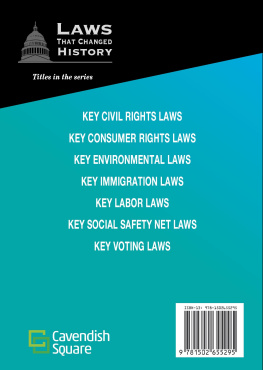
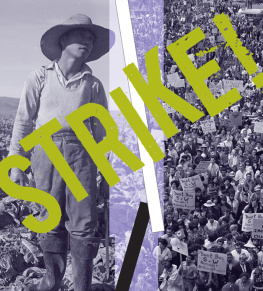
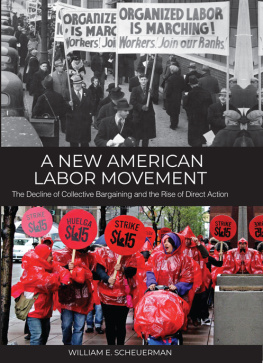
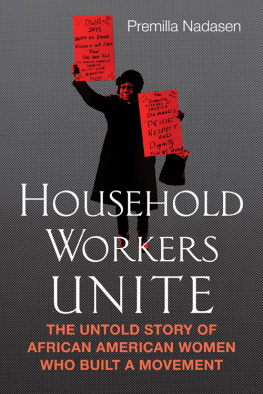
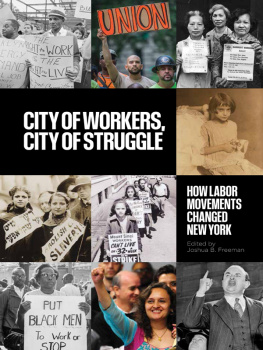
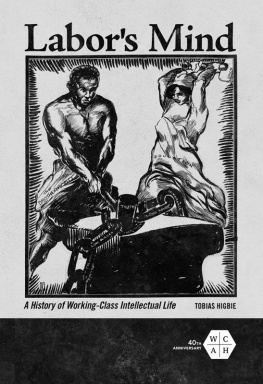
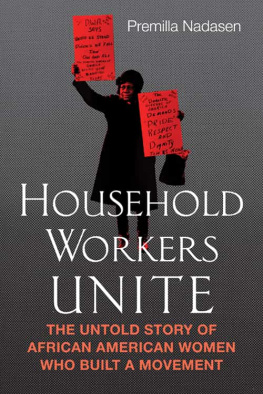
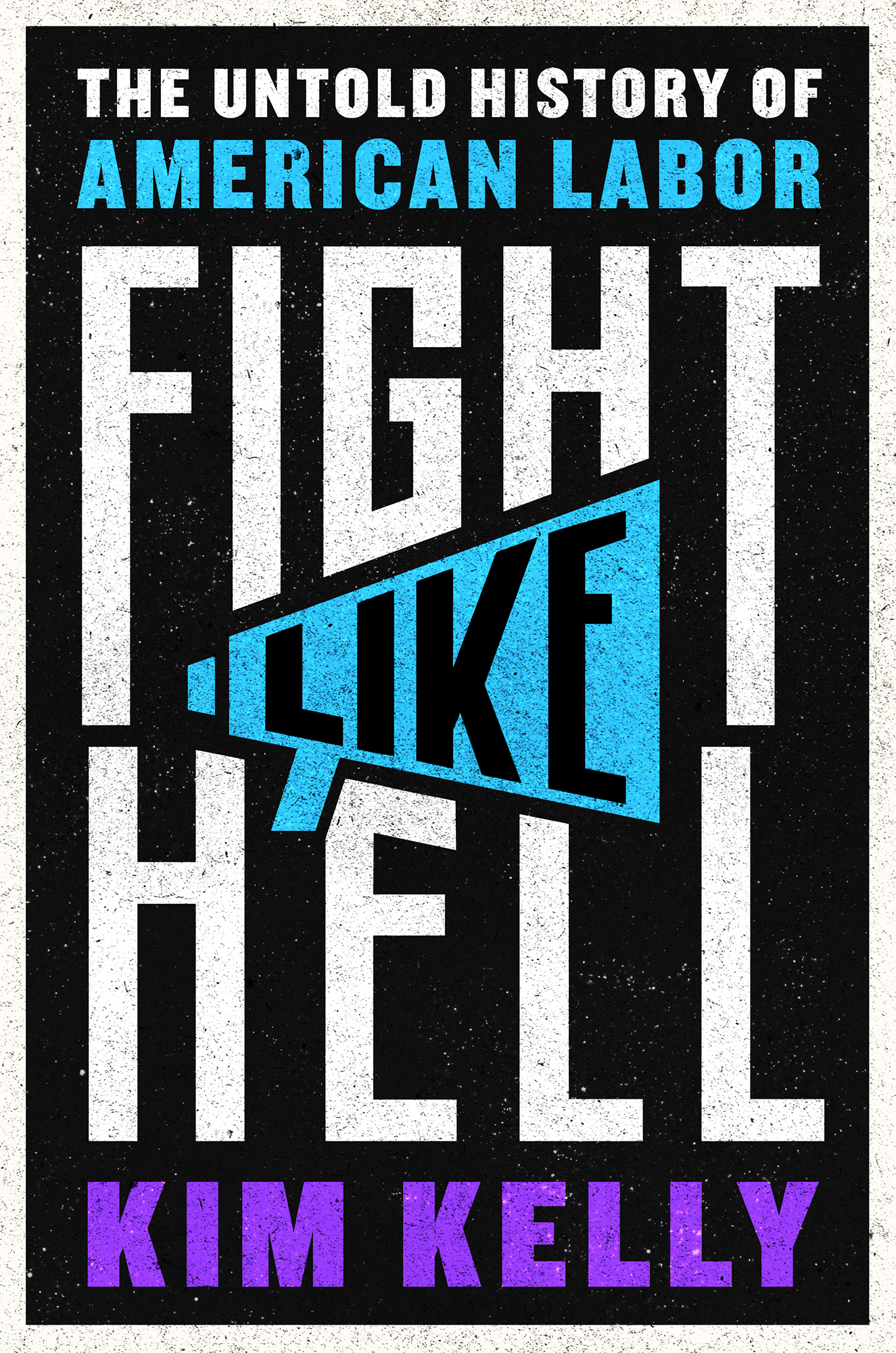


 and colophon are trademarks of Simon & Schuster, Inc.
and colophon are trademarks of Simon & Schuster, Inc.